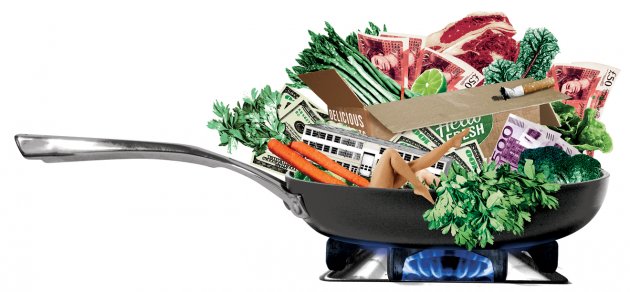While many grocery stores -- from Safeway to Publix to Whole Foods -- have offered to deliver food to your home for quite some time, two sellers have risen to the top of the heap: Amazon (which now owns Whole Foods) and Walmart. Despite increased interest in home delivery of groceries, only 2 percent of groceries are bought online by Americans. Compare this to the 6 percent of groceries bought online by UK residents.
The dominance of Amazon and Walmart was recently threatened by an unlikely source, however: Kroger -- the old-school grocer founded in Cincinnati, Ohio more than 130 years ago, in 1883.
This change of affairs came about after Kroger made a $250 million investment in Ocado, an extremely innovative online grocer located in the UK. Ocado has turned to technology to give it a leg up on the competition, using robotics and specialized software to make the process of picking and packaging orders much more efficient. According to a Wall Street Journal article, in one of Ocado's warehouses, "robots constantly shuffle a 'hive' of stacked boxes to expose the right groceries for human pickers to bag on behalf of customers."
It is reported that as a part of its deal with Ocado, within the next three years Kroger will build 20 automated warehouses to drive its grocery home delivery service -- at a cost of approximately $400 million each.
Kroger's online grocery strategy is already bearing fruit. According to the company, online sales surged by 66 percent over the past year -- putting the company in the lead for grocery delivery in the US.
Of course, it's unlikely that Amazon and Walmart will idly sit by as Kroger gains traction with an increasing number of online grocery shoppers. Amazon in particular is poised to strike back quickly. Said grocery industry consultant, Brittain Ladd, "Amazon has every intention of re-engineering their supply chain. They just haven't done it yet."
But until then, it appears that Kroger is going to enjoy its #1 position in grocery delivery for some time to come.







